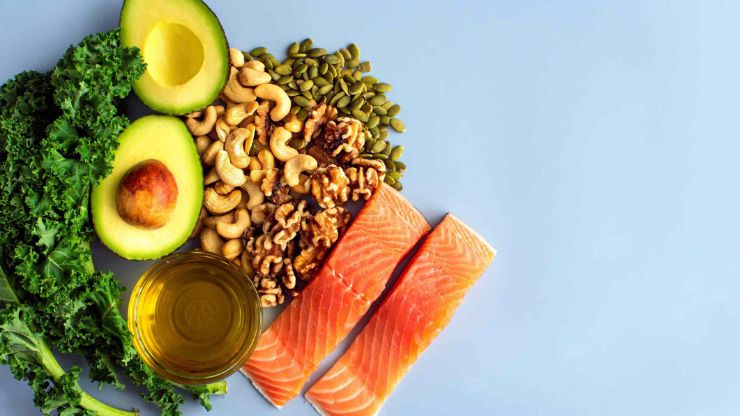Welcome to our blog highlighting the top 7 foods abundant in manganese, an essential trace mineral crucial for various bodily functions. Manganese plays a vital role in metabolism, bone health, and antioxidant defense, making it essential for overall well-being. In this article, we’ll explore the benefits of manganese, its role in the body, and the top food sources to incorporate into your diet. From nuts and seeds to leafy greens and whole grains, these nutrient-rich foods not only provide an excellent source of manganese but also offer a plethora of other vitamins, minerals, and antioxidants.
Whether you’re looking to support bone health, improve energy metabolism, or boost your immune system, adding these manganese-rich foods to your diet can help you achieve optimal health and vitality. Join us as we dive into the world of nutrition and discover the power of manganese-rich foods for enhancing your overall wellness.
Table of Contents
Toggle7 Foods Rich In Manganese
Discover the top 7 foods packed with manganese, an essential mineral vital for metabolism and bone health. From nuts and seeds to leafy greens and whole grains, these nutrient-rich foods offer a natural source of manganese to support your overall well-being and vitality.
Oats

Oats, a beloved breakfast staple, are renowned for their nutritional benefits and versatility. Beyond their role as a hearty morning meal, oats stand out as an excellent source of manganese, providing a remarkable 383% of the daily recommended intake per serving. This essential mineral plays a vital role in various bodily functions, including antioxidant activity, bone formation, and metabolism regulation. Incorporating oats into one’s diet not only ensures a significant boost in manganese intake but also offers additional health benefits.
Oats are rich in heart-healthy fiber, which aids in digestion, promotes satiety, and helps regulate blood sugar levels. Moreover, oats contain antioxidants that contribute to overall well-being by combating oxidative stress and inflammation in the body. Whether enjoyed as a warm bowl of oatmeal, baked into cookies, or blended into smoothies, oats are a nutritious and delicious addition to any diet.
Also Read- 7 Best Party Ever: Finger Foods & Appetizers
Whole Wheat
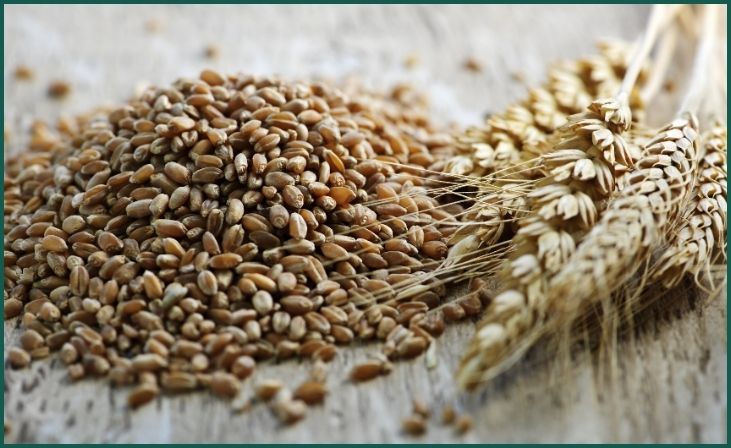
Whole wheat, a nutritious alternative to refined grains, offers a wealth of health benefits and is particularly notable for its high manganese content, providing 286% of the daily recommended intake per serving. This essential mineral plays a crucial role in various bodily functions, including antioxidant activity, bone health, and metabolism regulation. By incorporating whole wheat into one’s diet, individuals can support heart health, as it helps regulate blood sugar levels and promotes gut health through its fiber content.
Additionally, whole wheat is rich in essential nutrients and antioxidants, contributing to overall well-being and reducing the risk of chronic diseases. Whether enjoyed in the form of whole wheat bread, pasta, or flour, embracing whole wheat as a dietary staple ensures a nutrient-dense and wholesome approach to eating, fostering optimal health and vitality.
Pecans
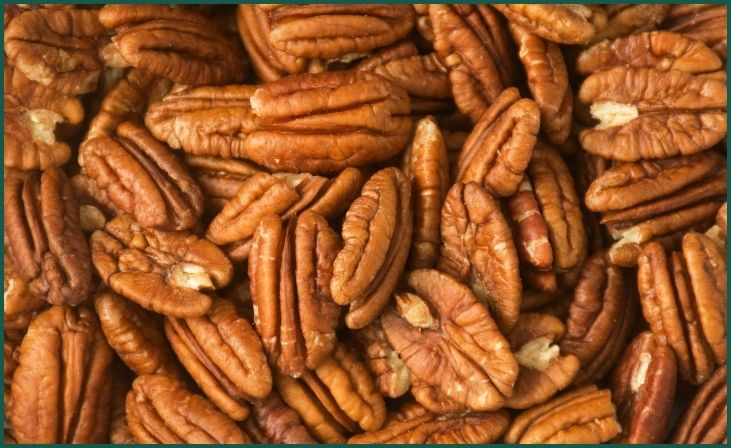
Pecans, not only a delightful treat but also a powerhouse of nutrients, stand out for their high manganese content, offering 245% of the daily recommended intake per serving. Beyond their delicious flavor, pecans boast numerous health benefits, making them a valuable addition to any diet. Rich in manganese, pecans play a vital role in supporting brain function, boosting metabolism, and aiding in red blood cell formation.
Additionally, pecans are packed with heart-healthy monounsaturated fats, fiber, and antioxidants, which help reduce inflammation and protect against chronic diseases like heart disease and cancer. Incorporating pecans into various dishes, such as salads, baked goods, or simply enjoying them as a snack, allows individuals to enjoy their nutty goodness while reaping the nutritional rewards. With their unique combination of flavor and health benefits, pecans are a versatile and nutritious addition to any balanced diet.
Don't just scroll, subscribe!
BuzzTrail's unique web-stories are the cure for boredom you've been waiting for.
Soybeans
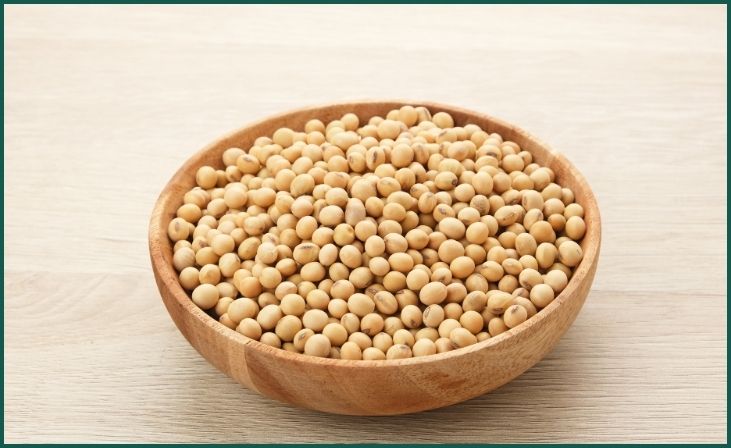
Soybeans, known for their versatility and nutritional value, are also a rich source of manganese, providing 234% of the daily recommended intake per serving. As a plant-based protein powerhouse, soybeans offer numerous health benefits beyond their manganese content. The soluble and insoluble fiber found in soybeans promotes gut health and may help lower cholesterol levels, reducing the risk of heart disease.
Additionally, soybeans contain essential amino acids, making them a complete protein source suitable for vegetarian and vegan diets. Incorporating soybeans into one’s diet through tofu, tempeh, soy milk, or edamame provides a wide range of nutrients, including vitamins, minerals, and antioxidants. With their diverse culinary applications and impressive nutritional profile, soybeans are a valuable addition to any balanced diet, offering both health benefits and delicious flavor.
Rye
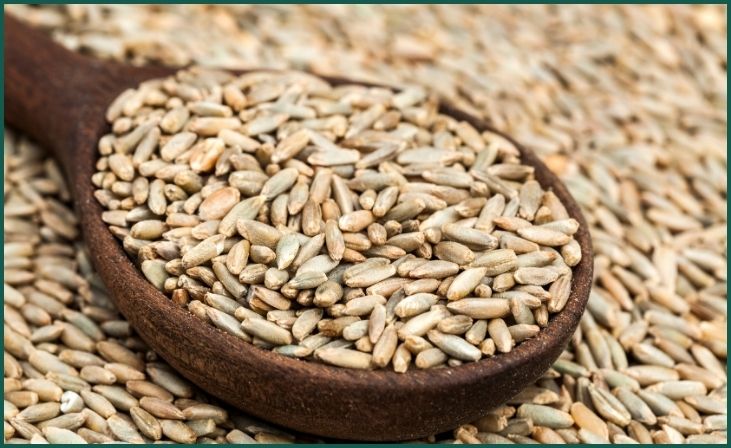
Rye, a nutrient-rich grain, stands out for its significant manganese content, offering 226% of the daily recommended intake per serving. Beyond its manganese content, rye offers numerous health benefits, making it a valuable addition to any diet. With its high fiber content, rye aids in appetite control and promotes gut health, reducing the risk of digestive issues and improving overall digestive function.
Additionally, rye contains compounds with anti-inflammatory properties, which may help reduce inflammation in the body and lower the risk of chronic diseases like heart disease and diabetes. Incorporating rye into one’s diet through bread, crackers, or as a substitute for other grains adds nutritional value and culinary variety to meals. With its impressive nutritional profile and potential health benefits, rye is a versatile and nutritious grain worth including in a balanced diet.
Barley
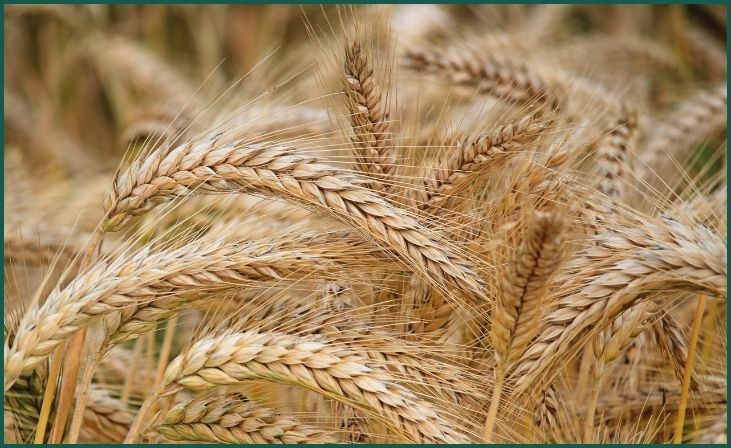
Barley, a versatile and nutrient-rich grain, is notable for its substantial manganese content, providing 179% of the daily recommended intake per serving. Beyond its manganese content, barley offers a plethora of health benefits, making it a valuable addition to any diet. Rich in essential minerals like selenium, niacin, and iron, barley supports overall health and well-being. Additionally, barley contains antioxidant lignans, which may help reduce the risk of cancer and heart disease by combating oxidative stress and inflammation in the body.
The high fiber content in barley promotes digestive health, aids in weight management, and helps regulate blood sugar levels. Incorporating barley into one’s diet through soups, salads, or as a side dish adds both nutritional value and culinary diversity to meals. With its impressive nutritional profile and potential health benefits, barley is a wholesome and nutritious grain deserving of a place in a balanced diet.
Quinoa
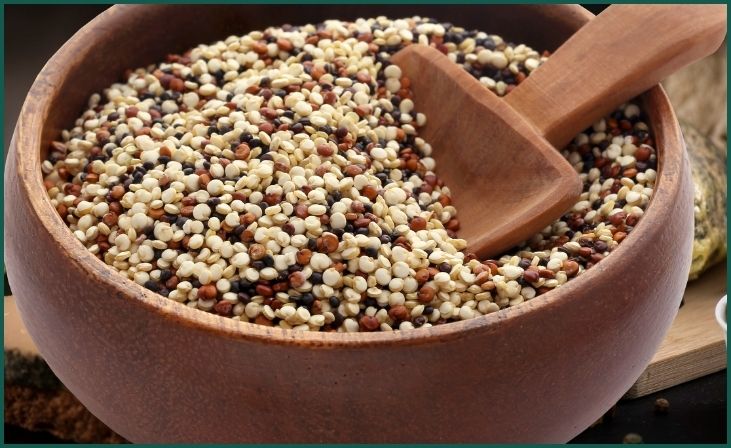
Quinoa, a gluten-free and protein-rich grain, is renowned for its exceptional nutritional profile and is particularly noteworthy for its high manganese content, providing 173% of the daily recommended intake per serving. Beyond its manganese content, quinoa offers a multitude of health benefits, making it a popular choice among health-conscious individuals. Rich in protein, quinoa is a complete protein source, containing all nine essential amino acids necessary for optimal health.
Additionally, quinoa is packed with fiber, vitamins, and minerals, including iron, magnesium, and phosphorus, contributing to improved digestion, weight management, and overall well-being. With its versatility and mild, nutty flavor, quinoa can be incorporated into a variety of dishes, from salads and soups to stir-fries and breakfast bowls. Whether enjoyed as a standalone side dish or as a main ingredient in a nutritious meal, quinoa is a valuable addition to any diet, offering both flavor and health benefits.
For more- 10 Healthy Foods That You Can Easily Grow In Your Kitchen Garden
Conclusion
In conclusion, incorporating manganese-rich foods into your diet can provide numerous health benefits, from supporting bone health and metabolism to promoting antioxidant activity and heart health. Oats, whole wheat, pecans, soybeans, rye, barley, and quinoa are not only delicious but also packed with essential nutrients, making them valuable additions to any balanced diet. By including these foods regularly, you can ensure adequate manganese intake and support overall well-being. Experiment with different recipes and enjoy the diverse flavors and textures these foods have to offer while reaping their nutritional rewards.
FAQs
Why is manganese important for health?
Why is manganese important for health?
Manganese is essential for various bodily functions, including antioxidant activity, bone formation, and metabolism regulation. It also plays a role in supporting heart health and immune function.
How can I incorporate manganese-rich foods into my diet?
How can I incorporate manganese-rich foods into my diet?
You can include manganese-rich foods like oats, whole wheat, pecans, soybeans, rye, barley, and quinoa in your meals through various recipes such as oatmeal, whole wheat bread, pecan salads, tofu stir-fries, rye crackers, barley soups, and quinoa bowls.

